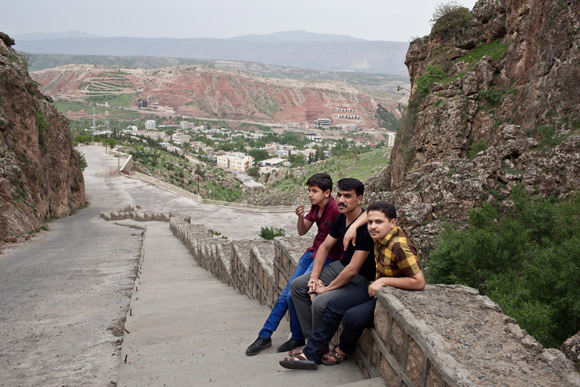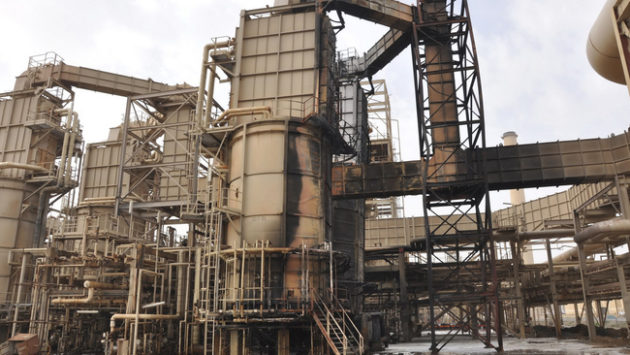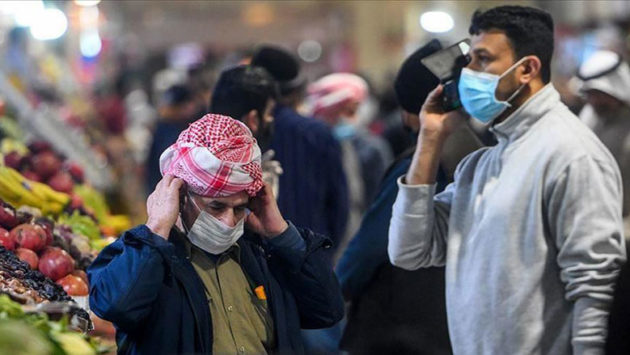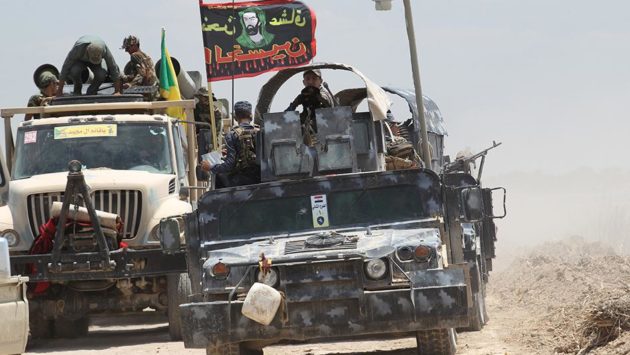IRAQ’S DISPLACED, FROM ANBAR TO KURDISTAN
JENNA KRAJESKI – Newyorker

On Wednesday, as Iraqis lined up to vote in parliamentary elections—the first since the withdrawal of U.S. forces, in 2011—many were far from home, scattered across the country by a new wave of violence. For tens of thousands of families from Anbar Province, where fighting between Iraqi security forces and Al Qaeda-inspired militants has raged since September, this sense of displacement is particularly profound, because they have taken refuge in Iraqi Kurdistan, the country’s autonomous northern region, which was once a retreat for American soldiers and is still touted as the war’s great success story.
While Anbar is mired in violence, Kurdistan is building hotels and courting international oil companies to explore its untapped reserves. As Iraqis wonder aloud whether a newly elected parliament can decrease sectarian violence, Kurdish politicians have been campaigning on promises of independence from Iraq.
In Shaqlawa, a Kurdish resort town near Erbil, which is ringed by mountains and known for its ice cream, the population has nearly doubled after an influx of displaced persons from Anbar. I met a man whom I will call Abu Mohammed, a Sunni Arab from Fallujah, near the Shaqlawa firehouse. Iraq’s Sunni and Kurdish populations both feel disenfranchised by the Shiite-majority Iraqi government, led by Nuri al-Maliki—as Dexter Filkins reported in a recent issue of the magazine. But, in Shaqlawa, the real division was between Kurds and Arabs. For months, locals had opened their hotels and businesses, with some reluctance, to the arriving Arabs. Many recalled a time, not so many years earlier, when they had needed help themselves. But as the weeks wore on, the rift between the locals and the Arabs grew. At the firehouse, where the displaced from Anbar came to collect aid, the firemen were slouched on sagging couches, complaining about the visitors. “When we distribute the goods”—foam mattresses, which were stacked to the ceiling, and sacks of rice and oil—“we tell them to line up, but they all push toward the front,” one fireman told me. He addressed the room, half joking: “Stop laughing, and pay us!”
Abu Mohammed, who is in his early thirties, was wearing traditional Kurdish clothes: a stiff olive-colored vest and baggy pants cinched at the waist by a wide cloth belt. He giggled about the getup, but the look was strategic: he couldn’t truly blend in, but he could display an eagerness to fit in among the Kurds, who remained wary of their new neighbors. He told me that he was learning Sorani Kurdish, the language of the region, and French, just for fun.
Abu Mohammed kept track of the families arriving in Shaqlawa. He could list their names aloud, along with where they were staying. He knew which hotels were fair, and which had hiked their fees in anticipation of the coming tourist season, pushing out displaced families. His own brother, he said, had been forced to return to Fallujah when the hotel where he had been staying doubled its rates. “It’s bad, really bad,” he said, of Fallujah. “There is gunfire and shelling all the time.”
In Shaqlawa, Abu Mohammed lives with his wife and their two young sons in a hotel room dominated by a wide bed. There is an adjacent kitchen, where his wife was cooking potatoes in oil for lunch. Outside his door, the small, grassy courtyard was roped off; rain had turned the ground to mud, and his sons played with other children, also from Fallujah, on a blanket spread near the driveway. He told me that he was lucky to be here—the hotel is owned by a man from Anbar. Stories like his brother’s were becoming increasingly common among Arabs in Shaqlawa as summer drew nearer. “I have a friend in an apartment here,” Abu Mohammed said. “The owner said he can’t stay for any amount of money.”
As in many Kurdish cities, the expectation of a more prosperous future is on display in Shaqlawa: the concrete skeletons of new hotels line the winding streets, and the surrounding mountains have been shaved by developers. The permanent population is mostly Kurdish, but, in the summer months, the hotels and restaurants fill up with Arab tourists who come looking for cooler weather and luxuries like reliable electricity. The tourists are welcome—as one man told me, “If the Arab tourists don’t come, there is no money in Shaqlawa”—but there is a difference between a tourist and a displaced person. The displaced carry their sadness with them. And, unlike tourists, they aren’t going home.
“When they came, we gave them permission for seven days because we thought they would only stay temporarily,” Rizgar Hassan, the mayor of Shaqlawa, told me. “Then, after two weeks, we thought they would leave. Then it became four months, and they are still here.” The mayor was worried about where the wealthy tourists would stay—if they came at all—and feared that potential investors might be spooked by the prospect of violence spilling over into Kurdistan. Mostly, he worried that people like Abu Mohammed would bring their war with them. There have been reports that Sunni citizens in Anbar have joined the foreign militants fighting the Iraqi army, which they see as an instrument of a repressive Shiite government. Even while Shaqlawa remains quiet, the displaced Iraqi Arabs are a reminder to the Kurds that the war unfolding just south of them is both ferocious and murky. Security, even more than oil, is Iraqi Kurdistan’s greatest asset. “Fallujah is very famous for security problems,” Hassan said.
In Fallujah, Abu Mohammed had been a teacher. In April, 2004, he told me, his house was attacked by U.S. Marines, after he was caught breaking a curfew. “My brother was sick and I needed to take him to the doctor,” he said. “It was dark and you weren’t supposed to leave the house, but I didn’t have a choice. The Americans must have seen the lights on my car.” Back then, he continued, “the fight was between the masked men and the U.S. Army. Now it’s scarier because it’s between Iraqis.”
As we walked along Shaqlawa’s renovated main street, past restaurants serving grilled fish and shops selling T-shirts, Abu Mohammed narrated the incident that had finally pushed him out of Fallujah. “I was stopped at a checkpoint and I had a camera in my car.” The checkpoint was manned by “young people, hiding their faces. One was smiling, I think he knew me. They wanted to take my camera, but I said no. I told them to check the camera, all you’ll find are photos of the mountains, the river, the birds. And they did. But they still covered my eyes and tied me up. They held me for four hours.”
The mayor of Shaqlawa’s concerns about security are widely shared by his constituents, who are similarly sparing in their compassion. The Kurds, Iraq’s largest ethnic minority, were abused under Saddam Hussein’s rule. But, in 1991, a protective no-fly zone was established over Iraqi Kurdistan, and, in the past decade, the region has flourished. Still, in their new role as the country’s most fortunate ethnic group, the Kurds’ suspicion of Iraqi Arabs can seem more like racism than defiance. At checkpoints, Kurdish police pull over cars with license plates from Arab cities, exchanging phrases in Sorani. In Kirkuk, a mixed city, one Kurdish politician has promised to surround the city with a trench, like the one being dug along the border with Syria, to fortify the boundary of Kurdistan. “They can come as tourists,” Hassan, the Shaqlawa mayor, said. “But we will not allow Arabization.” This attitude, justified by references to security, haunts the displaced. “Yes, the Arabs oppressed the Kurds,” Abu Mohammed told me, softly. “But the Kurds don’t have the right to hate us so much.”
In the days before the election, Shaqlawa, like other Kurdish cities, was full of campaign posters for Kurdish candidates. The colors of the three main Kurdish parties—blue, green, and yellow—dominated walls and lampposts. In late April, near Abu Mohammed’s hotel, two eager young men hung up a poster for an Arab candidate from Anbar province on a fence that was already covered with advertisements for the Kurdish parties—a small, sentimental act of defiance to remind themselves of home, like road-weary businessmen unpacking family photos in an airport hotel. But for the displaced Iraqis, it was hard to believe that something as remote and subdued as a vote could restore their homes or reform the government, which they blamed for stoking the sectarian violence. “They are monsters,” Abu Mohammed said. “Everyone knows this.”




